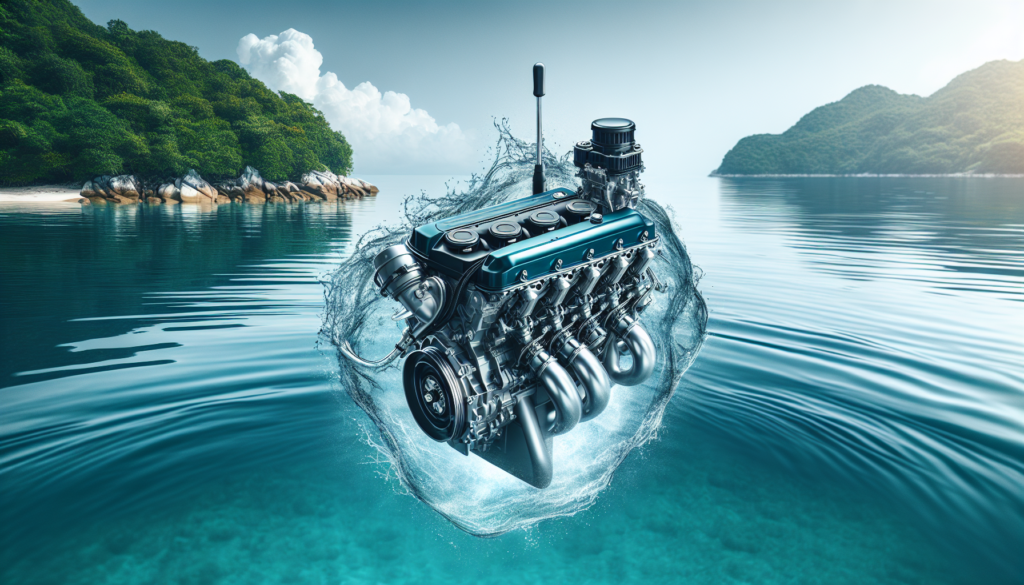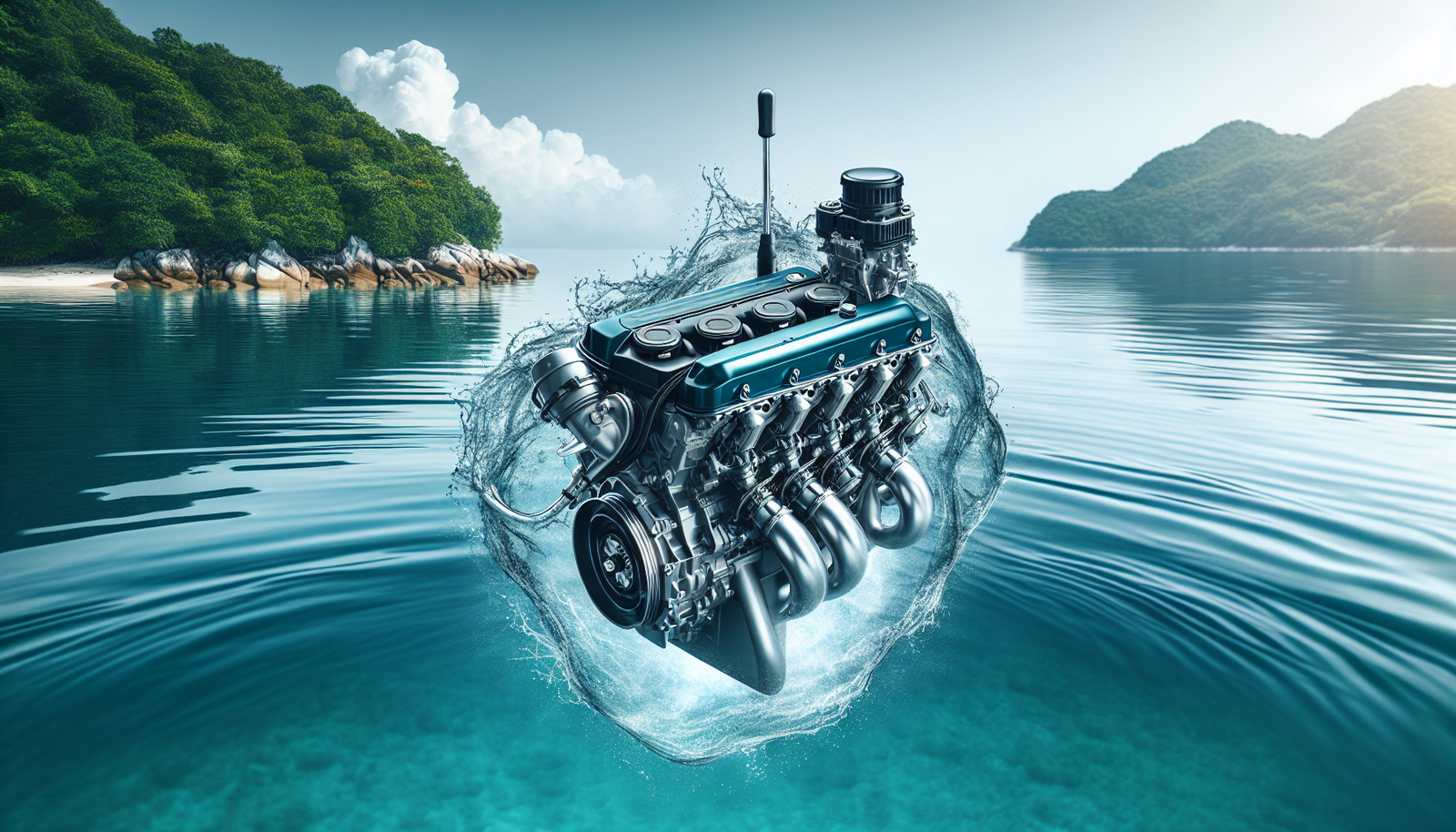Imagine a serene Sunday morning, the sun just peeking over the horizon giving the world a soft, warm glow. You step onto your boat, rod in hand, ready for a tranquil day of fishing. The only thing that could ruin this perfect scene is the constant worry about your boat’s gas-guzzling engine. Your love for fishing shouldn’t have to interfere with your savings or the environment, right? That’s where the importance of fuel-efficient boat engines comes into the picture. “Most Fuel-Efficient Boat Engines for Fishing” takes you through the latest, ultimate boat engines, specifically designed to maximize your fuel efficiency while ensuring your fishing trips are more eco-friendly.

The Importance of Fuel Efficiency in Boat Engines for Fishing
Being a fishing enthusiast, you are probably always on the lookout for ways to improve your experience. One area you might consider is the fuel efficiency of your boat engine. Achieving good fuel efficiency is crucial not just for your wallet but for environmental considerations as well.
Environmental considerations
When it comes to the natural environments where you love to fish, taking care always to leave them as clean and undisturbed as possible is a fundamental practice. A fuel-efficient boat engine produces less greenhouse gas emissions, helping reduce your carbon footprint and preserve the fishing grounds for future generations.
Cost saving benefits
A more fuel-efficient engine saves you money. When your boat’s engine uses less fuel, you spend less money on gas. Being fuel efficient means that the engine is performing at its best, allowing you to get more use out of every gallon.
Increased range and longevity
The more fuel efficient your engine is, the further you can travel on a single tank of gas. This means that you can reach more distant fishing grounds without worrying about running out of fuel. Furthermore, a fuel-efficient engine typically runs cooler, leading to reduced engine wear and increased longevity.
Factors Determining Fuel Efficiency in Boat Engines
When you consider fuel-efficient boat engines, there are several factors to consider that influence their efficiency.
Engine type
The type of engine you choose plays a massive role in the amount of fuel it consumes. Generally, diesel engines are more fuel-efficient than gasoline engines, but the initial cost might be higher.
Boat weight and drag
The weight of your boat and the drag it produces while moving through the water directly impacts fuel efficiency. A heavy boat will require more power to move, thus consume more fuel. Similarly, the more drag your boat produces, the harder your engine has to work.
Maintenance and tuning
Regular engine maintenance and tuning keep your engine running optimally, which translates into better fuel efficiency. Routine maintenance includes changing the oil, cleaning air filters, and inspecting your engine regularly.
Fuel type and quality
The type and quality of fuel you use also influences fuel efficiency. Higher quality fuels usually result in better efficiency as they burn cleaner and produce less engine residue.
Types of Fuel Efficient Boat Engines
Of all the choices out there, let’s discuss the four most common types: outboard, inboard, diesel, and gasoline engines.
Outboard engines
Outboard engines are mounted externally on the stern of the boat. They are known for their ease of installation and repair, lightweight design, and excellent fuel efficiency. They are available both in the two-stroke and four-stroke variants, with the latter being more fuel-efficient.
Inboard engines
Inboard engines, installed inside the boat, offer excellent stability and balance because of their central placement. They are especially suited for larger boats and can run on both diesel or gasoline fuel. Diesel-powered inboards are generally considered to be more fuel-efficient than their gasoline counterparts.
Diesel engines
Diesel engines are a popular option for boats due to their impeccable fuel efficiency and long lifespan. They provide a high torque output which is essential for high-load applications, but they do tend to be more expensive upfront.
Gasoline engines
Gasoline engines traditionally have not been as fuel-efficient as diesel engines, but technological advancements have narrowed the gap. They are less expensive to purchase, maintain, and repair, making them a cost-effective choice for many.
Features of Fuel Efficient Outboard Engines
Outboard engines are favored by many anglers due to several unique characteristics.
Design characteristics
Modern outboard engines are designed to deliver performance while being fuel-efficient. Their compact and lightweight design reduces the overall weight of the boat, leading to efficient fuel consumption.
Fuel type and usage
Outboard engines generally use gasoline, though some large ones can use diesel. Four-stroke outboards consume less fuel than two-stroke counterparts since they only fire once every four piston strokes.
Performance on the water
Fuel-efficient outboard engines deliver top-notch performance on water, accelerating quickly and offering excellent top-end speed. They are also easy to service and maintain, increasing their lifespan and overall value.

Highlights of Fuel Efficient Inboard Engines
Inboard engines offer several perks that make them a great choice for boats.
Design and function
Inboards are typically more massive and are centrally mounted in boats, offering better balance and stability. They also free up space in the stern area for more fishing gear.
Fuel consumption per horsepower
Generally, inboard engines offer better fuel efficiency per horsepower than outboard engines. Diesel inboards are particularly efficient, providing excellent fuel economy.
Reliability and maintenance
Inboard engines are well known for their reliability and durability. With regular maintenance, these engines can last for several years, making them a valuable asset to any fishing boat.
Advantages of Fuel Efficient Diesel Engines for Fishing
When it comes to fishing, diesel engines offer some unique benefits.
Durability and longevity
Diesel engines are built to withstand severe conditions and high workload. As a result, they tend to be more durable and longer lasting than gasoline engines.
Torque and power
The torque output of a diesel engine is generally higher than a gasoline engine. This characteristic is especially useful in boat engines, where high torque is crucial for overcoming wave resistance and load demands.
Fuel economy
Despite its higher cost per gallon, diesel fuel is more energy dense than gasoline. This means diesel engines generally consume less fuel and provide better mileage, making them more cost-effective in the long run.
Benefits of Fuel Efficient Gasoline Engines
Even though they may not be as fuel-efficient as diesel engines, gasoline engines for boats do provide unique benefits.
Acceleration and speed
Gasoline engines are known for their fast acceleration and high speeds, an aspect that many fishing enthusiasts need when chasing quick-moving schools of fish.
Maintenance and cost
Gasoline engines are simpler in design, and the maintenance cost tends to be more affordable. The upfront cost of purchasing a gasoline engine is also generally lower than a diesel engine.
Fuel usage and efficiency
Contemporary designs and technology have significantly improved the fuel efficiency of gasoline engines. Many modern models now rival their diesel counterparts in fuel efficiency, while remaining lighter and less expensive.
Top Fuel-Efficient Outboard Engine Models for Fishing
If you are contemplating an outboard engine, here are three efficient models you can consider.
Suzuki DF300
The Suzuki DF300 offers excellent fuel efficiency thanks to its Lean Burn Control system. This technology optimises the fuel-air mixture within the combustion chamber, improving fuel economy especially during cruising.
Yamaha F300
The Yamaha F300 utilizes advanced technology to ensure maximum fuel efficiency. The engine also offers excellent power and torque, making it ideal for both inshore and offshore fishing.
Mercury Verado 350
The Mercury Verado 350 features a supercharged four-stroke engine with excellent fuel efficiency. The engine’s power-to-weight ratio is among the best in its class, promoting high performance and efficient fuel use.
Leading Fuel-Efficient Inboard Engine Models for Fishing
Here’s a look at three fuel-efficient inboard engines that are perfect for fishing.
Yanmar 6LY3-ETP
The Yanmar 6LY3-ETP is among the most fuel-efficient diesel inboards in the market. It offers substantial power and torque, making it an excellent choice for serious fishing efforts.
Volvo Penta D6-370
The Volvo Penta D6-370 is a common sight in fishing boats due to its fuel-efficient performance and durability. Its common-rail fuel injection technology ensures high fuel efficiency.
Cummins QSC8.3-600
Renowned for its ruggedness, the Cummins QSC8.3-600 is a fuel-efficient inboard option that is capable of handling the rigors of fishing. It utilizes high-pressure fuel injection and advanced turbocharging for optimum performance and fuel economy.
Fuel-Efficient Gasoline Engine Models for Fishing
If a gasoline engine is what you prefer, then check out these fuel-efficient options.
Mercury Marine Verado
Known for its superior power-to-weight ratio and fuel efficiency, the Mercury Marine Verado features a supercharged four-stroke engine. It combines speed, power, and efficiency, making it an excellent choice for fishing.
Yamaha F300
Like its outboard version, the inboard Yamaha F300 also offers fantastic power coupled with fuel efficiency. The engine optimizes every drop of fuel for maximum performance.
Honda BF250
The Honda BF250 combines a large displacement three-litre block with a powerful, efficient design. It also has an advanced lean-burn control system that significantly improves fuel efficiency, making it ideal for fishing trips.
In conclusion, selecting a fuel-efficient engine for your fishing boat depends on various factors such as your boating needs and budget. Remember, regular maintenance and safe boating practices go a long way in maintaining fuel efficiency and prolonging your engine’s life.


[…] when selecting your boat engine. This article aims to equip you with knowledge about engine power, Fuel efficiency, reliability, smooth operation, and even noise levels, all to ensure your sails are always smooth […]